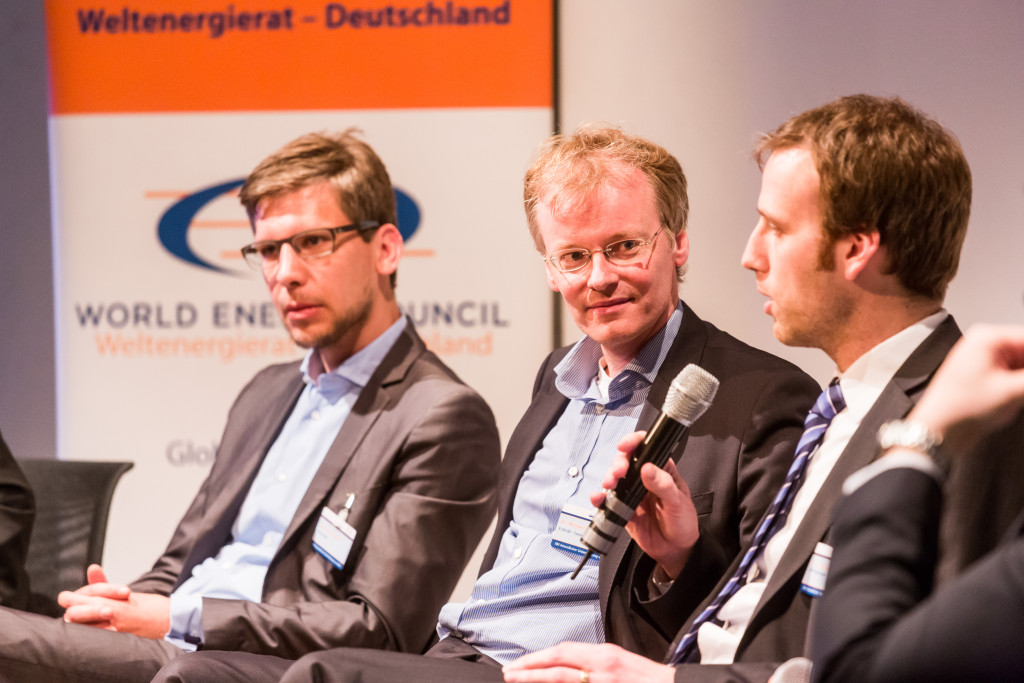It is no exaggeration to say that “Big Data” is on the tip of everybody’s tongue in the energy industry these days. Just as we witness the evolution of this phenomenon into general consciousness – its implications for the energy sector come into question. What does “Big Data” mean and how will it affect the energy industry’s business models? And what can the energy sector learn from other industries? This public panel discussion was therefore held in order to bring clarity to the discussion and ferret out the potential of Big Data in the energy context.
“4 Vs” of Big Data
As always with technology, it is crucial to know exactly what you are looking for and why it is important. Christian Kirschniak, Executive Partner at IBM, explained the “4 Vs” of Big Data: volume, variety, velocity and veracity. Kirschniak’s presentation showed equating “big data” merely with “lots of data” is wrong. He pointed out that – from a data perspective – the term Big Data generally pertains “to the combination of structured data and unstructured data.”
The audience also learned that the key value driver in the Big Data business has shifted from a company’s capability to collect Big Data to its capability to move to insight-driven actions as fast as possible, thus “velocity”. Existing applications in the energy sector show that Big Data can improve grid efficiency and reliability through constant monitoring and feedback – reducing operating cost by over 20%. In the renewables sector, weather modelling reduces the time to identify placement of wind turbines to hours.
Both industry representatives and scientists on a discussion panel agreed that in a renewables market of increasingly decentralised power generation, Big Data analytics play a crucial role. Dr Clemens van Dinther, Professor of Business Analytics at EBS Business School, stated that these developments would eventually lead to “a convergence of industries in the energy sector”.

Utilities as cross-sectorial service providers
According to Dr Michael Fipper, VP of Technology and Innovation Strategy at E.ON, future energy market leaders will have to “broaden their energy-related offerings”. Fipper pointed out that traditional power generation companies will eventually “cease to exist in the future” and transform into “cross-sectorial service providers”. Only such an interlinked business model holds the promise of effectively understanding and shaping customers’ energy usage while improving service levels and availability.
The focal point of the discussion was whether individual consumers would be willing to disclose their energy usage data. All panelists agreed that this is a purely consumer-driven choice and is dependent upon the customers’ ability to identify individual benefits to be gained by doing so.
Although no concrete calls for government action in terms of data protection were put forward, the majority of panelists called upon the German Ministry of Economic Affairs and Energy as well as the Federal Network Agency to incentivise investments in intelligent grid technology instead of focusing on “copper cables and power transformers”.
-
story by Timothy Trollope, Weltenergierat, the German committee of the World Energy Council
-
Weltenergierat gives special thanks to all experts involved: Christian Kirschniak (IBM), Dr. Michael Fipper (E.ON), Dr. Jonas Danzeisen (venios), Dr. Clemens van Dinther (ESB Reutlingen), Robert Busch (bne), Dr. Alexander Dix (Berlin Representative for Data Protection and Freedom of Information) as well as moderator Dr. Joachim Müller-Soarez (BIZZ energy today).





